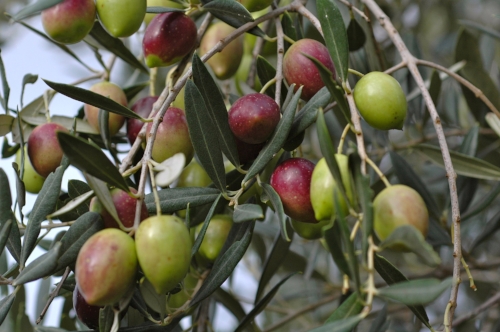Your Basic Guide to Fats and Oils
Fats and oils are hot topics these days. If you grew up in my generation (70's child), vegetable oils were good and butter and animal fats were bad. End of story. Government and mass food industry supported guidelines warned us that any animal derived fat was a no-no and low fat and fat-free were the way to go. The truth behind this propaganda, greed-fueled and unsubstantiated by science, became public information only a few years ago. So now what? What kinds of fats and oils should we be ingesting?
It's a complicated story. We learned a lot by reading Cate Shanahan's book, Deep Nutrition. It is chock full of information - and definitely a dense read. Here is a summary of what we learned.
1. Why are vegetable/seed oils so toxic?
Vegetable oils are loaded with polyunsaturated fatty acids, also known as PUFAs. These PUFAs are highly unstable. When exposed to heat and chemical stress they rapidly breakdown and transforming into free-radical promoting molecules, potentially causing major cell damage. What do I mean by cell damage?
These oils are inflammatory, irritating the gut lining and impairing digestion by reducing the ability to produce stomach acid.
They create oxidative stress in the body, leading to neuro degenerative diseases. When heated, these oils exponentially amplify naturally occurring oxidation, so that the body has a hard time fighting it. They also limit nitric oxide signaling which slows brain functioning.
Vegetable and seed oils can cause gene mutation. There are studies linking them to autism and organ malfunction.
Having a problem with circulation? It could be due to vegetable and seed oils. They can cause cardiovascular dysfunction, erectile dysfunction (yikes), migraines and also stifles the body's ability to recover from brain injury.
In a nut shell, they are aging accelerators. I don't know anyone who wants that!
Increases genomic instability (causing gene mutation).
2. Does it matter how the oils are processed? What if they are expeller-pressed?
Yes, it matters, but when it comes to vegetable and seed oils, expeller-pressed does not mean safe. Expeller pressed suggests "gently extracted", but in reality, it only means the oils were first mechanically extracted. The next part of the process usually involves refining, bleaching and deodorizing, rendering the oil oxidized.
3. What the heck should we eat and cook with and what should we avoid?
Here's a short list taken right off of Dr. Shanahan's website.
And lastly, some tips!
- Look for extra virgin, cold pressed oils. For olive oils, specifically made in California, look for the Califonia Olive Oil Council Seal.
- For extra virgin olive oil, look for a harvest date. They are best used within 18 months from harvest.
- When cooking with high heat, stir frequently.
- Also for high heat cooking, certain oil combinations are ideal. Butter and olive oil protect each other. Sesame and peanut oil are good combinations as well. Sesame oil is high in PUFA's but is also incredibly packed with antioxidants. Peanut oil protects the PUFA's from oxidizing.
At our signature retreats, we show you EXACTLY how to put all of this together and use some of the oils suggested. Join us in beautiful Mallorca in September and experience the taste of authentic, traditionally made Spanish olive oil. We will be visiting a biodynamic extra virgin olive oil mill!
As always, please reach out with questions and comments!



